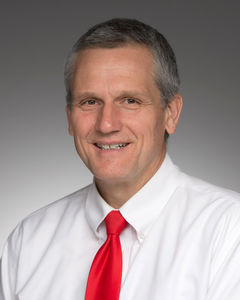Merlin Bruening

Donald and Susan Rice Professor of Engineering, Professor of Chemistry and Biochemistry
University of Notre Dame
Microporous membranes for Antibody capture and characterization
Because of their high specificities and long circulation lifetimes, monoclonal antibodies are the fastest growing class of cancer drugs, and their efficacy is often remarkable. Nevertheless, results vary among patients, partly because of different antibody clearance and modification rates. The Bruening group is creating rapid, convenient methods to both determine antibody concentrations in blood and detect antibody modifications. Because antibody levels and modifications relate to their efficacy and side effects, analysis of antibody concentrations and compositions should help physicians make informed decisions on ordering additional doses of these very expensive treatments.
The new analysis methods will rely on rapid mass transport and minimal radial diffusion limitations in microporous membranes to afford fast capture and elution of antibodies. Passage of serum through membranes modified with peptides that mimic the antibody epitope will yield selective capture of therapeutic antibodies in minutes. Subsequent elution and controlled digestion in protease-containing membranes will enable analysis of modifications using mass spectrometry. Determination of antibody concentrations will employ optical methods that may include use of a secondary antibody, and these techniques will apply to both analysis of antibodies in blood and development of new therapeutics.